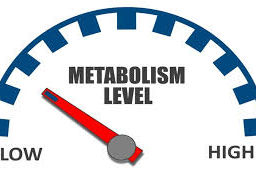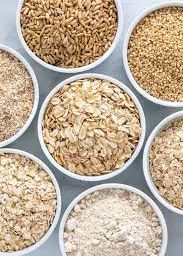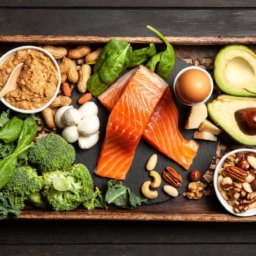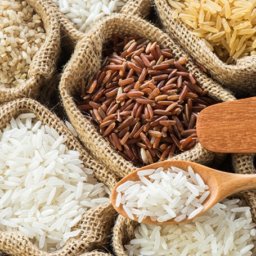“How could I have gained two pounds overnight? I had a salad for lunch and a healthy dinner. I should weigh two pounds less!”
We tend to think what we did or didn’t eat yesterday should show up the next day on the scale. But it doesn’t work that way. It takes a lot longer for dietary changes to result in fat loss (or gain).
If you gain or lose three or four pounds overnight, most of that is probably due to water weight.
What exactly is water weight?
Your body needs water to function, and a lot of it. Water is held in a variety of places in the body. Our bones, for example, are about 30% water.
Other compartments, such as our stomachs and bladders, can hold relatively large amounts of water, too. And here’s the thing: Water is heavy. A pint of water weighs about one pound.
If you were to weigh yourself, drink 16 ounces of fluids, and immediately weigh yourself again, you’d have gained one pound in about 15 seconds. Weigh yourself before and after going to the bathroom or after heavy sweating, and you will see a drop on the scale.
But that’s not the only thing we’re talking about when we mention water weight.
Water is used for all body functions, everything from maintaining body temperature, lubricating our membranes, metabolizing nutrients, getting rid of waste, cushioning joints, maintaining electrolyte balance, converting carbohydrates to glycogen, and breaking down protein. All of these activities affect the amount of water retained in our bodies. Exactly how much water is in your body depends mostly on your age, sex, and body composition, but overall the average person carries around 2-6 pounds of water.
Obviously, the amount of fluid in your body has a fairly profound (yet meaningless) effect on your body weight. That’s why I always say, “the scale doesn’t tell the whole story, not even half, a quarter of it at most.”
So, What Causes Water Weight?
Your body wants to keep water, sodium, and electrolytes in balance naturally. That said, the following are habits that can spark water retention.
- Dehydration. When you are dehydrated, your body will try to conserve as much water as possible. Your body takes water and stores it in your tissue and joints, ensuring that it maintains the balance it needs to survive. Americans don’t drink enough water. I always recommend drinking about half of your body weight in ounces of water daily. If you find that’s too much or too little water for you, adjust as needed.
- Eating too much sodium. When you consume too much sodium, your body will hold on to extra water to balance out your intake. That’s because the kidneys like to maintain a special ratio of electrolytes (sodium, to potassium, to water). And have you ever noticed when you eat alot of salt, you’re more thirsty? It’s the body’s way of trying to correct that sodium-water ratio.
- Menstruation. Women who menstruate are more likely to retain 3-5 pounds od water a couple of days to a week before their periods due to fluctuating hormones. This water retention will reach its peak around the first day of your period, and then it will lessen over the coming days.
How does eating carbs affect Water Weight?
If you dramatically reduce the amount of carbohydrates you eat, it forces your body to dip into the glycogen stored in your muscles and liver for energy. As the glycogen is used for energy, a lot of water is released into the bloodstream and routed to the kidneys for elimination.Dieterss will see a big drop on the scal when this happense, but it’s not fat loss, just water loss.
This effect is also completely reversible. As soon as you start eating more carbohydrates, your weight will spike. Again, it’s not fat, but water gain. For every 1 gram of carbohydrates you eat, your body will store 3-4 grams of water. So for example, if you eat 1 cup of rice, your body will store 6 ounces of water.
Some say that’s why they call them carbo-hydrates because they “hydrate” your body.
How to Prevent Water Weight gain?
Stay hydrated. Make sure you’re drinking at least half of your body weight in ounces of water. When you’re well-hydrated, you’re less likely to retain water weight.
Limit salty foods. If you don’t want to retain more water than necessary, limit overly salty or processed foods.
Get Moving. Working out can help flush out your body’s excess water. On a simpler note, if you tend to be at a desk all day, make sure you’re getting up and walking around regularly since that movement helps prevent fluid retention by increasing your circulation.
Get enough sleep. When you’re super stressed and sleep-deprived, your body releases cortisol, which can actually negatively impact your body’s ability to balance its water.
Eat more greens. Increasing your intake of green vegetables (especially dandelion root and asparagus) can help because they are high in water and are good sources of magnesium and potassium, which help relieve water retention.
Final Note
As tempting as it might be, I don’t recommend using a diuretic supplement to get rid of water weight. Overdoing it with diuretics can lead to dehydration and electrolyte imbalances.
Water weight can come and go for various reasons, but most are temporary and not related to long-term changes in body fat. Don’t get freaked out (or impressed) by big swings on the scale. A moving average calculator can help smooth out those meaningless ups and downs and reveal what’s really going on with your weight.








